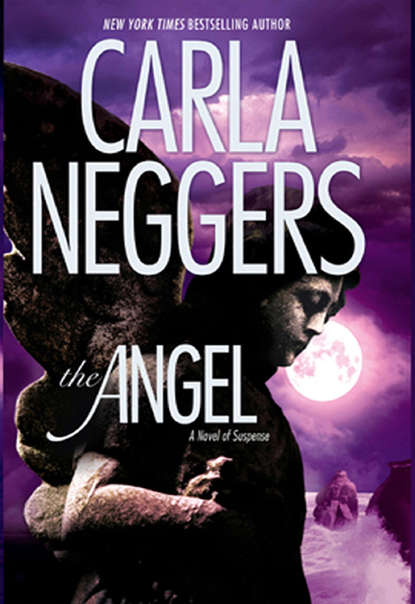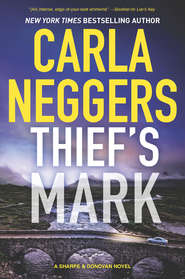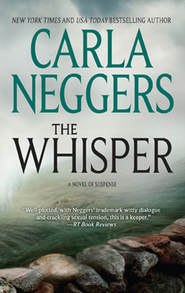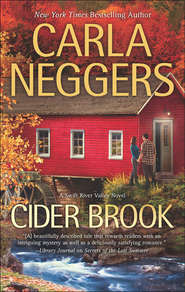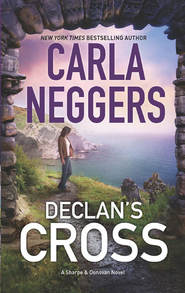По всем вопросам обращайтесь на: info@litportal.ru
(©) 2003-2025.
✖
The Angel
Автор
Год написания книги
2019
Настройки чтения
Размер шрифта
Высота строк
Поля
June 20
On her second night in Ireland, Keira indulged in a “toasted special”—a grilled ham, cheese, tomato and red onion sandwich—and a mug of coffee liberally laced with some Irish whiskey. She hadn’t specified a brand. She’d told Eddie O’Shea, the owner of the only pub in the tiny Beara Peninsula village where she was to spend the next six weeks, that she wanted whiskey, whiskey from Ireland. Otherwise, she didn’t care.
“Another coffee?” Eddie asked her. He was a sandy-haired, slight man with a quick wit and a friendly nature that seemed tailor-made for his work.
“No, thank you.” Keira heard the touch of Boston in her voice, a surprise to her given her wandering lifestyle. She picked up a triangle of her sandwich, melted cheese oozing from the toasted white bread, a bit of onion curling into a charred sliver of ham. Less than two days on the southwest coast of Ireland, and she was settling in fine and looking forward to her stay there. “If I had more coffee, I’d have more whiskey, and then I’d be in a fix.”
Eddie eyed her with what she could only describe as skeptical amusement. “You’re not driving.”
“I plan to take a walk.” She picked up her mug, the coffee still very hot, and let it warm her hands. “I love these long June days. Tomorrow’s the summer solstice. You never know what mischief you might encounter this time of year.”
“Off to dance with fairies and engage in a bit of magic, are you? Well, be careful, or you’ll be mistaken for a fairy princess yourself.”
“Do you believe in the Good People, then, Eddie?” she asked with a smile.
“I’m not a superstitious man.”
She hadn’t told him Patsy’s story. Investigating a tale of Irish brothers, fairies and a stone angel, Keira had decided, required a clear-but-not-too-clear head. She wanted to be gutsy but not reckless, determined but not insane. She hoped the combination of whiskey and caffeine would do the trick.
Eddie moved off with a tray of drinks, delivering them to a knot of men gathered in a semicircle of spindly chairs in front of a small television. She’d learned they were local farmers and fishermen who’d known each other all their lives. They’d arrived at the pub one by one over the past hour to watch a hurling match and argue good-naturedly among themselves. If they’d been arguing about fairies, magic, ancient rituals and ancient stories told by the fire—that, Keira thought, would have compelled her to eavesdrop, perhaps even to join them. She didn’t know much about hurling, except that it was fast, rough and immensely popular with Eddie O’Shea and his friends.
She’d had dinner at the pub last night, too. She’d hit it off with Eddie right away. Nonetheless, she was keenly aware that the locals were beginning to construct a story about her and her presence in their village. She supposed she’d helped by dropping an odd tidbit here and there—not fiction so much as not the whole truth. She’d never once lied to any of them.
They believed she’d come to Ireland in the typical Irish-American search for her roots and herself, and she supposed, in a way, she had.
She left a few euros on the wooden bar and took her coffee with her as she stepped outside into what was, truly, one of the finer evenings of this and her two previous visits to Ireland. A good beginning to her stay, she thought. She could feel her jet lag easing, the tension of her last hours in Boston finally losing its grip on her.
A man in a threadbare tweed jacket, wool pants, an Irish wool cap and mud-encrusted wellies sat at a picnic table next to the pub’s entrance. He faced the street, smoking a cigarette. He looked up at Keira with eyes as clear and true a blue as she’d ever seen. His skin was weather-beaten, laced with deep wrinkles. He had short, straight gray hair. He could have been sixty or eighty—or a hundred-and-eighty, she thought. He had a timeless quality to him.
He said something in Irish that didn’t include one of the fifty or so words she knew. Her mother spoke Irish—or used to. “I’m sorry—”
“Enjoy your walk, Keira Sullivan.” He blew out a cloud of cigarette smoke and gave just the slightest of smiles. “I know you. Ah, yes. I know you well.”
She was so stunned, she jumped back, stumbling and nearly spilling coffee down her front.
When she righted herself, coffee intact, the man was gone.
Where had he slipped off to so fast?
Keira peered up the quiet, narrow village street, lined with brightly colored stucco houses. The vivid blue, fuchsia, green, yellow and red could light up even the gloomiest Irish weather. Baskets of lavender and dark pink geraniums hung from lampposts. A few cars were parked along the sides of the road, but there was no traffic. Except for a single dog barking toward the water and the occasional hoots from the men in the pub, the street was quiet.
Keira debated going back into the pub to see if the man was there, or asking Eddie O’Shea if he’d seen him, but as much as she and Eddie had hit it off, she’d known him less than two days and didn’t want to stir up any further gossip.
Maybe the mysterious man had overindulged in Guinness and was staggering up a nearby lane, or he lived in one of the houses on the main street and simply had gone home.
Maybe he’d decided to have a little fun with the American tourist.
She couldn’t read anything into what the man—a perfect stranger—had said.
Keira took his spot at the picnic table, and as she sipped her coffee, lukewarm now, she noticed there wasn’t even a hint of cigarette smoke in the pleasant evening air.
After she left the pub, Keira shoved her hands into the pockets of a traditional Irish wool knit sweater she’d bought in Kenmare, a pretty village famous for its shops and restaurants. It was located farther up Kenmare Bay, which separated the Beara and the Iveragh peninsulas, two of the five fingers of land in southwest Ireland that jutted out into the stormy Atlantic Ocean.
She turned onto a bucolic lane that ran parallel to the village’s protected harbor, gray and still now at low tide, and across the bay, the jagged silhouette of the MacGillicuddy Reeks of the Iveragh Peninsula were outlined against the muted sky. Off to her right, the rugged, barren mountains of the sparsely populated Beara Peninsula rose up sharply, with tufts of milky clouds, or fog, maybe, sinking into rocky crevices.
Keira could hear the distant bleating of the sheep that dotted the hills.
The ancient stone walls along the lane were overgrown with masses of pink roses and wildflowers—blue, purple and yellow thistles, pink foxglove, various drifts and spikes of white flowers.
And holly, Keira saw with a smile, lots of it. By tradition, cutting down a holly tree was bad luck.
There were tall rhododendrons and the occasional pop of a bright fuchsia that had long ago escaped cultivation. The southwest Irish climate, warmed by the Gulf Stream, was mild year-round, hospitable to subtropical plants in spite of fierce gales.
Her rented cottage was just up ahead, a traditional structure of gray stone that, to her relief, was charming and perfect for her stay. Keira made a mental note to send a postcard to Colm Dermott thanking him for his help in finding it.
She hugged her sweater closer to her and pushed back any thoughts that might entice her to duck into her cottage and pour herself another whiskey and put on music, then tuck herself among her warm blankets and sketch pretty pictures of Irish scenery. It was tempting just to forget her mission.
After another thirty yards, she turned onto a dirt track that wound through the middle of a rock-strewn pasture, marked off with barbed wire and rising sharply. She’d walked up this way yesterday to get a feel for her surroundings. She was surprised at how well they corresponded to the details in Patsy’s story.
Sheep grazed far up into the hills, part of the Slieve Miskish Mountains that ran down the lower spine of the peninsula to the Atlantic and the now-defunct copper mines, where Patsy’s grandfather had worked.
The track leveled off briefly, and Keira heard a grunt nearby.
A cow. It’s only a damn cow.
Then came a shriek of laughter, and a woman’s voice. “Oh, no! Look—I stepped in it!”
A man chuckled. “Apparently cows don’t care about prehistoric ruins.”
The couple climbed over a barbed-wire fence onto the track. They were obviously American, the slight breeze catching the ends of their graying hair as they checked their scuffed walking shoes for cow manure. The woman smiled at Keira. “I suppose if one’s going to traipse through a cow pasture, one should expect cow patties. Are you going out to the stone circle?”
“Not tonight,” Keira said.
She’d checked out the stone circle yesterday after her arrival. It was one of over a hundred of the mysterious megalithic structures in County Cork, a particularly good example because it was relatively large and missing just one of its eleven stones. Getting to it required climbing over fences and navigating cows, rutted ground, rocks and manure.
The woman gave up on her shoe. “It’s incredible—and to see it this time of year…” She beamed, obviously delighted with her adventure. “Such a thrill. We half hoped we’d run into fairies dancing.”
Her companion sighed. “You hoped we’d see fairies.”
She rolled her eyes with amusement and addressed Keira. “My husband has no sense of romance.” She gestured broadly toward the harbor and village below. “We’re staying in Kenmare. You’re American, too?”
“I’m from Boston—I’m renting a cottage here,” Keira said, leaving her explanation at that.
“Lovely. Well, enjoy your walk.”
“Mind the cow flops if you go in the pasture,” her husband said.
Keira wished the couple a good-night, and as they ambled down the gravel track, she felt more relaxed. It wasn’t as remote out here as it seemed. She’d come prepared. She had food, water, a flashlight, a first-aid kit and a whistle for emergencies.





